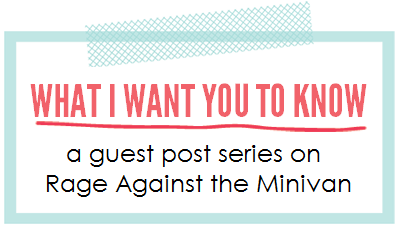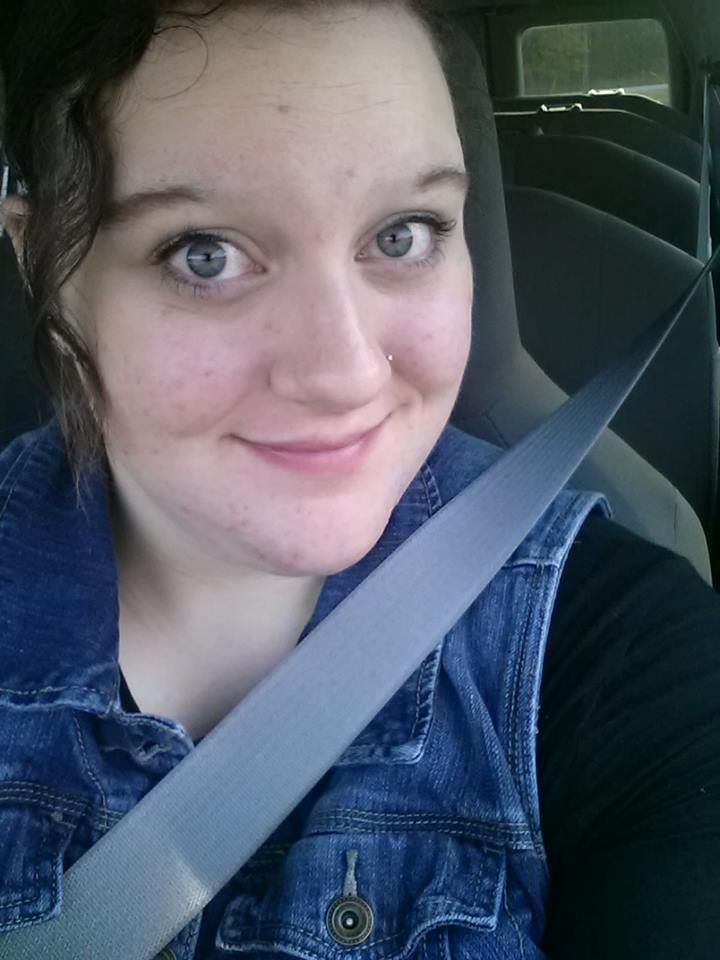What I Want You to Know is a series of reader submissions. It is an attempt to allow people to tell their personal stories, in the hopes of bringing greater compassion to the unique issues each of us face. If you would like to submit a story to this series, click here. Today’s guest post is by Kristin Michelle.
“What happened to your arms?” It’s a question I hear on a regular basis as someone who once dealt with self-harm. I struggled with cutting from ages 13 through 17. I dealt with clinical depression and constant bullying from a very young age, the results of which were feelings of worthlessness and constant emotional pain from the depression. I turned to cutting as my way of coping with the internal pain and cared little for the consequences of my self-harm. Cutting was, at the time, my way of living until I got up the nerve to commit suicide.
I am now 20 and have overcome my depression and my self-harm addiction. Unfortunately, cutting is a struggle that has left it’s permanent mark. My arms are covered from wrist to elbow in hundreds of scars of varying severity. Scar creams have done little to nothing to help fade the marks, so living with them is something I have had to get used to. Yet the reactions I get are difficult to get used to. I have been stared at, told my arms look gross, told I should seek help, told I am an attention-seeker, told that I am crazy, masochistic, emo, and so many other things that show lack of knowledge on the issue of cutting. To me it is simple, say something nice or nothing at all. To tell me how disgusting my arms look does nothing to help the situation at hand. I have had a friend tell me I should wear long sleeves to cover up my scars. I have also been told on multiple occasions that by wearing short sleeves, I am “showing off” my scars and am an attention seeker. I am not going to wear long sleeves to cover my scarred arms just to spare others the sight. It is unrealistic to expect me to wear long sleeves every day for the rest of my life to cover the marks. When I struggled with cutting, I had to wear long sleeves in even the hottest weather to cover the wounds. Cutting controlled my entire life down to what I wore. Having overcome my problem, why would I allow it to continue controlling any aspect of my life, including my clothing choices?
I remember a recent visit to a doctor where I had to wear a hospital gown backwards, which also revealed the scars on my stomach (also from cutting). The doctor was going through my old prescriptions, none of which I am taking anymore as they are now unnecessary. The doctor got to my old anti-depressant I was on, touched one of my scars, and said, “Are you sure you don’t need this prescription?” She is not a psychiatric doctor, but I knew she meant well and I politely responded that I had not needed that for a couple of years. Then while taking my pulse, she looked at me and said, “You’re not hiding any more cuts anywhere, are you?” You don’t have to be a doctor to see that the marks on me are closed scars, not fresh cuts. At this point, I felt slightly offended, but said, “These are all years old scars, I don’t do that anymore.” While this was the most irritating case of a doctor asking about my scars, I have yet to go for a single doctors visit where the doctor or nurse doesn’t mention my scars. I will have conversations with people where they stare at my arms for about 90% of our interaction. I can tell they think I don’t notice, so I don’t mention it or call them out on it. In those situations, I wish they would just ask so I can tell them and we can move on. When I come home from college for Thanksgiving or Christmas (when it’s long sleeve weather), sometimes I notice my mom staring at my arms if I’ve worn nothing but long sleeves. I’ll subtly roll up my sleeves as if I’m hot just so she can see that I haven’t relapsed.
Living with these scars is definitely a difficulty. Most days I don’t even notice them since I am so used to them. When someone has a negative reaction to my scars such as saying I should keep my arms covered or someone is constantly staring, I go back to feeling ashamed, like I do need to hide. I do get nice reactions from people saying I’m strong for overcoming the problem or complimenting how much I must have changed as a person because of how optimistic I am. Those reactions are so helpful. Even just asking “What happened to your arms?” not rudely, but as a simple question is great. Then I can simply explain it is an issue I once had but have recovered from and we can move on. The hardest part about living with self-harm scars is when people react negatively, because those people I’ve known to have negative reactions identify me as an ex-cutter and nothing else. I am at times identified as the scars on my arms. It’s the first thing a lot of people notice about me and my identity becomes nothing more if they are unwilling to simply acknowledge it and move past it. Everyone has their own opinion on self-harm and cutters and the stereotypes related to those things, and I understand that and try to be as polite as I can be to each and every reaction I face. It’s overwhelming at times to know I will spend the rest of my life with these scars, that one day I will have children and I will have to talk to them about what I did. It’s hard knowing I will deal with these reactions for many years to come. Ultimately, though, I refuse to let any reaction change how I view myself or my scars. To me, my scars aren’t just a teenage mistake or my own personal shame. They show that I was able to quit cutting, heal, and move on to live a good and happy life despite the pain I dealt with as a child and teenager. Of course I wish all people would understand that my past is in the past, that I am not defined by my scars, and that I am in a much better place today. Not everyone will react in a kind or supportive way, but I am fortunate enough to have family and friends who loved and supported me through the rough years and my recovery, and continue to love and support me as I continue to live a new, happier, and healthier life. I’ve made my peace with living with my scars, and anyone worth having in my life will be able to make their peace with my scars as well.


